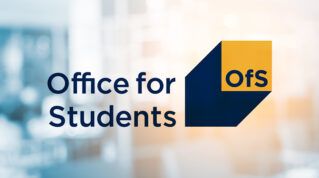Three colleges have been sanctioned by the government’s higher education regulator for high dropout and low completion rates.
The Office for Students (OfS) today has published a batch of improvement notices for courses in eight HE providers that have breached condition B3. The condition was refreshed in 2022 and sets numerical thresholds for students continuing and completing their course, and achieving successful outcomes after graduation.
Burnley College, Blackburn College and Croydon College were included and will now be monitored by the regulator for the next few years. They have been ordered to submit a “comprehensive review” in the next six months of the failings and actions to improve student outcomes.
The regulator examined performance data spanning the past decade.
Here’s what the OfS said about each college:
Croydon College
The OfS’ investigation into Croydon College found the poorest performance rates out of the three colleges put on improvement notice.
As of September 2022, the college recorded 28 per cent of part-time, other undergraduate students continuing their HE courses into the next year, achieving just half of the OfS’s 55 per cent benchmark.
Just 41 per cent of part-time students completed their degrees compared to the 55 per cent OfS benchmark.
The regulator accepted the college’s evidence that the low outcomes data among part-time students was due to the “historical withdrawal” of student recruitment on Higher National Certificate (HNC) in business course during 2014-15 and 2015-16.
This was due to a terminated partnership agreement with distance learning recruitment company Acquire Learning UK, following a 2015 investigation into the organisation’s recruitment processes by the Department of Business, Innovation and Skills and the Student Loans Company.
Meanwhile, for full-time first time degree students, the college recorded a 76 per cent continuation rate against an 80 per cent threshold.
The college also fell 11 percentage points behind the 75 per cent requirement for full time students to complete their first degree.
In its explanation following the OfS investigation, the college said it had made changes to its higher education portfolio since 2013-14, closing poor performing courses, focusing on the needs of local employers and developing courses within the Higher Technical Qualification and higher apprenticeship frameworks.
The college added that changes to its senior leadership since March 2018 meant the leadership team “did not know many of the historical reasons” for lower continuation and completion rates.
But the OfS pointed out that while the continuation rate data investigated spanned from 2016-17 to 2019-20 and the completion rate data from 2013-14 to 2016-17, leadership team would have had access to historical documentation such as annual reports, minutes of meetings and handover notes.
It concluded the leadership team would have had some historical information to analyse the areas of concern and reasons for poor performance, which “could have informed any improvement plans”.
The regulator added that it was not satisfied with the college’s improvement plan from 2018-19 for its HE provision and has mandated the college to undertake a review and submit to the OfS by January 31, 2025.
The regulator said the college was at “increased risk” of failing to achieve the benchmarks in future years.
It will continue to monitor the provider’s performance until its outcomes data in spring 2027.
Croydon College was downgraded by Ofsted to ‘inadequate’ last year after inspectors found “significant minority” of students reported instances of homophobic language and “taunting” behaviour. Its latest monitoring visit since has found reasonable progress made.
Blackburn College
At Blackburn College, the OfS investigated courses delivered by the college’s University Centre and found it breached the “student outcomes” conditions of registration as of September 2022.
Blackburn College’s proportion of full-time students on their first degree who continued their course from year to year was 75 per cent against the OfS’s 80 per cent threshold.
For full-time, other undergraduate students, the “continuation rate” was 72 per cent against a 75 per cent benchmark.
The college also failed in meeting the 75 per cent threshold for full-time students completing their degree (67 per cent).
The college submitted explanations for not meeting the benchmark values, such as the changes to its senior leadership since 2019 and actions like offering targeted pastoral support and staff development to improve the quality of its courses.
The OfS found that the contextual factors submitted by the provider justified its performance but concluded that there is an increased risk of the provider breaching the benchmarks.
The college will have to conduct a comprehensive review by January 2025 and bring its performance in line or above the OfS thresholds by spring 2028.
“We consider that this aligns with our commitment to undertake a ‘light touch’ approach in the first year of conducting revised B3 assessments by using improvement notices, rather than the more intrusive sanctions available to us,” the report said.
Rachel Tarplee, vice principal of curriculum and quality at Blackburn College, said the college acknowledges the findings and has taken the recommendations into account.
“We remain proud of our offering at UCBC. Our smaller student population enables us to provide a high quality and uniquely personalised local University education, encompassing a range of degree subjects that set our students up for successful futures,” she said.
“The focus for UCBC and the wider team at Blackburn College will be on continuing to deliver quality education that meets the needs of our students.”
Burnley College
The OfS found Burnley College was at “increased risk” of breaching two student outcomes, the continuation of full-time, first-degree student and the progression of full-time, first degree students.
As of September 2022, the college achieved a 76 per cent continuation rate, against an 80 per cent benchmark.
The OfS also found 50 per cent of full-time students on Burnley College courses progressed in managerial or professional employment, further study or other positive outcomes, 10 percentage points lower than the requirement.
The college explained the performance data was lower than the regulators’ benchmark due to the impact of the pandemic and “historical data quality issues at the college”, both of which the regulator rejected.
The OfS also found the college’s provision of financial, pastoral and academic support and a campus extension supported students provided “little evidence” that it had improved outcomes.
“While the college had already taken actions in relation to some programmes, these had not led to any noticeable improvement,” the report said. “For example, an allied health programme had been under significant review since 2017 and was only moved into critical review in 2021 after it became clear that previous actions had not been effective in bringing about improved and sustained outcomes for its students.”
The OfS will monitor the college until spring 2028 and has mandated a review of its current improvement plans by January 2025.
The regulator explained: “The actions the provider has taken have not yet led to substantial and sustained improvement in performance, and we do not consider the actions the provider plans to take are likely to sufficiently improve performance in an appropriate timescale.”
Croydon College and Burnley College were approached for comment.

















Croydon College has had nothing but issues since the new leadership has been in place. Financial results over student outcomes is the focus – previous Board minutes show the current leadership were fully aware of challenges from day one – good to see the OfS see through that excuse.